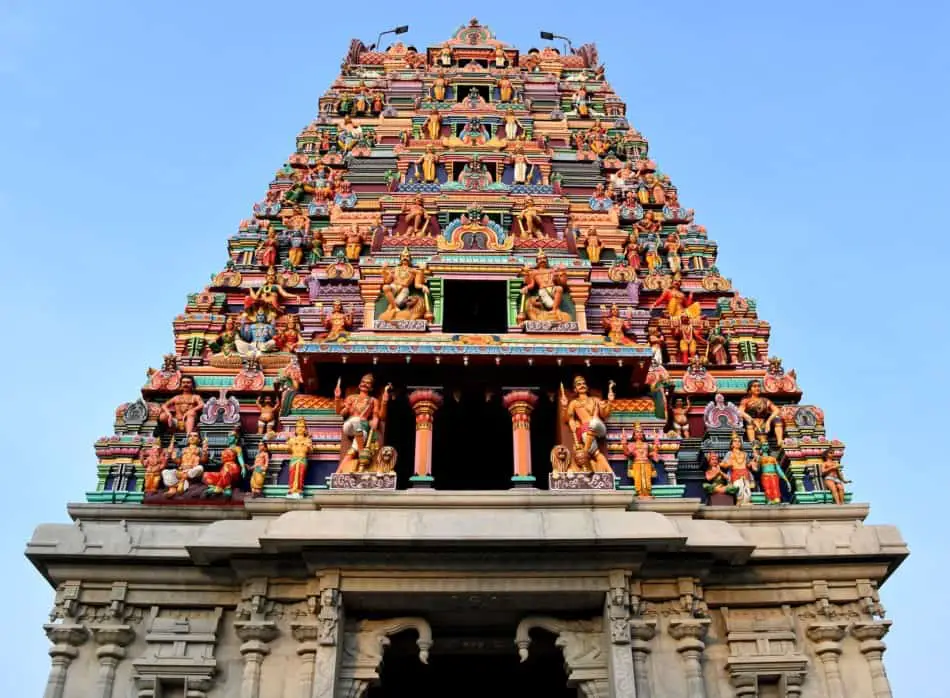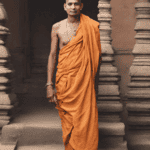Many people claim that the Hindu religion has 33 million or 330 million or 3 crore gods existing due to the fact that Hinduism is a polytheistic religion, there have been so many arguments and wrong information about the whole concept of polytheism act among the Hindu people, below are facts about the validity or invalidity of the concept of existence of 33 million gods existing among the Hindu religion.

After a series of research, it’s proven that the existence of 33 million/330 million/3 crore gods among the Hindu religion is only but a misconception from people with wrong information/concepts about the whole Hindu religion. In the Hindu religion, the Vedic proclaims that there is only one supreme God that exists in two different levels of reality, the two existence commonly known as “Parabraham” and “Paramatma”, the two existence named after “Braham”.
Hindu people are believed to worship this Supreme God in person and also impersonal form. Hinduism believes in the existence of the main Supreme God and the other four denominations. These four denominations include Vaishnavism, Shaivism, Shaktism, and Smartism. There is no existence of 33 million gods in the Hindu religion, the misinformation comes from the existing 33 Koti of Devas, and simply meaning 33 types of gods whose function of existence is to sustain the world. The 33 Koti of Devas is also the creation of Supreme Braham.
Check out our Products Page for idols that will help you in life or you can find them on Amazon by clicking here.
To listen the answer on YouTube, watch the below video:
The main supreme God, the four main denominations and the 33 Devas
The main supreme God among the Hindu religion is referred to as the Braham or para Braham or Paramatma. The supreme God is believed to have two main manifestations, and these are;
- Trinity which includes Braham, Vishnu, and Shiva.
- Avatars of the trinity.
Vedic proclaims that there is only one supreme God that exists in two different levels of reality, the two existence commonly known as “Parabraham” and “Paramatma”, the two existence named after “Braham”. Hindu people are believed to worship this Supreme God in person and also impersonal form. Vedas mention the impersonal God which exist in ultimate reality and the original nature of God from an absolute point of view commonly referred to as Paramarthika Satya, we also have the Puranas which mention Trumurti who are three personal manifestations of Brahman, as a comic spirit or space empirical truth.
Trinity and their avatars have different divide bodies but a common soul, commonly referred to as the Atman, Atman is believed to be the innermost root and essence and that is the Supreme God. Trinity and their avatars are, all the same, the difference comes since they have manifested different divine bodies.
In Hindu religion there are four main denominations, the four denominations all have different roles, they include;
Vaishnavism
Followers of Vaishnavism worship Lord Vishnu and his ten incarnations. Among the ten incarnations, Krishna and Rama are the most worshipped by the Hindu people. The Lord Vishnu is considered the supreme Braham.
Shaivism
Followers of Shaivism are referred to as the Shaivas or Shaivites. Shaivas are those who worship Lord Shiva primarily as the supreme God.
Shaktism
Followers of Shaktism are referred to as Shaktas, Shaktas are believed to worship goddess as Mother Shakti. Mother Shakti is believed to have two roles and these are;
- Acts as the supreme God.
- Acts as the Prakriti, meaning the illusive energy (Maya) of Braham, which is considered to be part of the Braham itself.
In Shaktism, the goddess is presented as both the Braham and also the Prakriti.
Smartism
Followers of Smartism are referred to as Smartas, Smartas treat all deities equally. Their temple includes all the five deities, commonly referred to as the Pancopasana or Panchadevata.
Smartism is nonsectarian as it encourages the worship of any personal god all with other gods such as Ganesha, Shiva, Devi, Vishnu, and Surya.
The existence of 33 million gods among the Hindu religion is considered a misconception or misinformation from the fact that there are 33 Koti of Devas.
Devas are a creation of the supreme Braham and their function is to sustain the world. Each living being consists of a fraction of Devas. Devas in beings don’t have the ability to give beings the freedom of cycles of death and birth (Samsara), this in the Hindu language implies that the Devas are not able to give any living being Moksha/Nirvana hence they are not to be worshipped.
Devas were only worshipped to get temporary heaven that is the Swarg, those seeking liberation and freedom from Samsara, this the cycle of death and birth, they are to pray considering the presence of Supreme Braham within them in the form of Atman i.e. the root consciousness.
Is Hastar real God?
Hastar is a deity featured in the Tumbbad film, Hastar is the first and beloved son of Goddess Earth, he was considered over his other siblings, and they were a family of 16 crore gods and goddesses.
Hastar though was greedy for all the goddess’s gold and food, for this he was cursed. Hastar who was to be the god, then became the fallen god then became the cursed demon. Hastar is considered the entity that seeks the void within all those seeking his gold.
Hastar was weakened by his other 16 other siblings, after realizing Hastar had reached the grain, Hastar’s mother on seeing this she decided to help Hastar by containing him back to her womb on one condition that he would never be worshipped again, that was the price. Hastar’s named was then cleared and censored from any texts for the rest of eternity.
How many gods are there in Hindu mythology?
There are only 33 koti of Devas, referring to gods, in the ancient texts of the Hindu religion, these gods have specific role from the supreme God, Braham, however others claim that there is no fixed number of deities in the Hindu religion, basing on the 33 known koti of Devas.
Devas are a creation of the supreme Braham and their function is to sustain the world. Each living being consists of a fraction of Devas. Devas in beings don’t have the ability to give beings the freedom of cycles of death and birth (Samsara), this in Hindu language implies that the Devas are not able to give any living being Moksha/Nirvana hence they are not to be worshipped.
Devas where only worshipped to get temporary heaven that is the Swarg, those seeking liberation and freedom from Samsara, this the cycle of death and birth, they are to pray considering the presence of Supreme Braham within them in the form of Atman i.e. the root consciousness
How many gods exist in the planet?
Existence can mean two different things, first “considered by some human at some point” and second, “are real”. The above query depends also in your definition of “god”, this is because;
- God’s definition is the all-powerful creator of the universe
If this is your God’s definition then there only exist one sole creator and the only God of the universe.
- Definition of god as any powerful being worshipped somewhere by humans
Here there are several religion that define god as stated above. Hindu religion alone has 33 Vedic gods and other unmentioned religions have also so many gods they believe in, approximately 10,000,000 gods.
All of these religions are polytheistic. Some religions have unquestionable faith which include having celestial bodies as their gods.
- Definition of god as any deity worshipped by some human throughout a recorded history
These type of believers has a number of gods ranging between 8000 – 12000 gods in existence.
- There is no God
An atheist or one who does not believe in God’s existence then definitely has no god. There no of gods that exist is zero.
